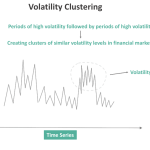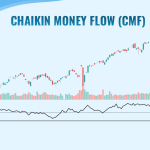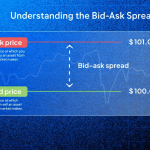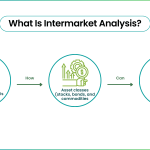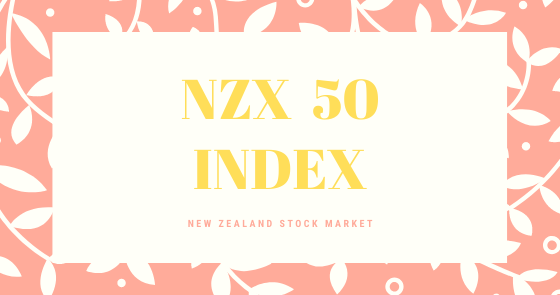
What is the S&P/NZX 50 Index?
The S&P/NZX 50 Index is New Zealand’s leading stock market index, tracking the performance of the top 50 companies listed on the New Zealand Stock Exchange (NZX). These companies represent a wide range of industries, such as agriculture, energy, telecommunications, healthcare, and financial services, giving a broad view of the country’s economic landscape. The S&P/NZX 50 is a float-adjusted, market-capitalization-weighted index, meaning the companies with larger market capitalization and higher public float have a greater impact on the index’s movements.
This index is jointly managed by Standard & Poor’s (S&P) and the New Zealand Stock Exchange, and it serves as the primary gauge for the overall performance of the New Zealand equity market.
Why is the S&P/NZX 50 Index Important?
- Market Benchmark: The S&P/NZX 50 Index is the most widely followed index for New Zealand’s equity market. It represents the performance of the largest and most liquid stocks on the NZX, making it the primary benchmark for both domestic and international investors looking to assess the health of the New Zealand economy.
- Reflects Economic Health: The companies in the index come from key sectors of New Zealand’s economy, providing an insight into the broader economic performance of the country. A rising S&P/NZX 50 Index typically indicates strong corporate earnings and economic growth, while a decline may signal economic challenges.
- International Recognition: As an S&P-managed index, the S&P/NZX 50 benefits from global recognition. This makes it an attractive point of reference for international investors interested in New Zealand’s economy or those looking for diversification outside of more widely followed markets like the U.S. or Europe.
- Basis for Financial Products: The index serves as the foundation for various financial instruments, including ETFs (exchange-traded funds) and derivatives like futures and options. This makes it accessible to both institutional and retail investors who want exposure to the New Zealand equity market.
Why Use the S&P/NZX 50 Index?
- Diversified Exposure: The S&P/NZX 50 Index provides investors with a diversified portfolio of leading New Zealand companies. By investing in an index fund or ETF that tracks the S&P/NZX 50, you gain exposure to multiple sectors, reducing the risk of investing in individual stocks. The index covers a wide range of industries, giving investors a balanced snapshot of New Zealand’s economy.
- Accessibility: The S&P/NZX 50 Index is available through various ETFs and managed funds, making it an easy way for retail investors to participate in the stock market without having to pick and manage individual stocks. This is ideal for passive investors who prefer a “set it and forget it” approach.
- Liquidity: Companies in the S&P/NZX 50 are among the most liquid on the New Zealand Stock Exchange, meaning they can be bought and sold easily. This liquidity ensures that investors can enter or exit positions with relative ease, minimizing transaction costs.
- Performance Tracking: For institutional investors or fund managers, the S&P/NZX 50 provides a benchmark for performance comparison. This index is commonly used to measure how well a particular fund or portfolio is doing compared to the broader market.
Should You Invest in the S&P/NZX 50 Index?
Investing in the S&P/NZX 50 Index can be a prudent choice depending on your investment objectives, risk tolerance, and views on the New Zealand economy. Below are some factors to consider:
- Economic Stability and Growth: New Zealand is known for its political and economic stability, making it a relatively safe environment for investors. The country has a strong agricultural base, innovative technology sector, and expanding healthcare industry, all of which are represented in the S&P/NZX 50 Index. Investors who believe in the continued growth of the New Zealand economy may find the index an appealing investment.
- Dividend Yield: Many companies in the S&P/NZX 50, especially in sectors like utilities and telecommunications, offer attractive dividend yields. This can be beneficial for income-focused investors who are looking for steady dividend payouts in addition to potential capital appreciation.
- Diversification: For global investors, investing in the S&P/NZX 50 provides diversification beyond traditional markets such as the U.S. and Europe. This can help reduce overall portfolio risk, as New Zealand’s market may behave differently from other major global markets, offering a counterbalance in times of volatility elsewhere.
- Currency Risk: International investors should be aware of the currency risk when investing in the S&P/NZX 50 Index, as the value of the New Zealand dollar (NZD) can fluctuate against other major currencies. Currency movements can impact the returns for foreign investors. However, some funds offer currency-hedged options to mitigate this risk.
- Sector Exposure: The S&P/NZX 50 Index has a strong concentration in sectors like utilities, telecommunications, and agriculture, which play a significant role in the New Zealand economy. Investors who are optimistic about these sectors may find the index a good match for their portfolio. However, this concentration can also introduce sector-specific risks if one of these industries faces challenges.
Conclusion
The S&P/NZX 50 Index is an essential benchmark for those looking to invest in New Zealand’s equity market. It offers broad exposure to some of the largest and most influential companies in the country, making it a suitable investment for those seeking diversification, dividend income, and exposure to a stable, growing economy.
As with any investment, it’s important to consider your financial goals, risk tolerance, and market outlook before committing. For those seeking low-cost, passive exposure to New Zealand’s economy, investing in an ETF or mutual fund that tracks the S&P/NZX 50 can be an efficient and effective strategy. However, be mindful of currency risks and sector concentration, especially if you’re an international investor. Always consult with a financial advisor to ensure the investment aligns with your overall portfolio strategy.


